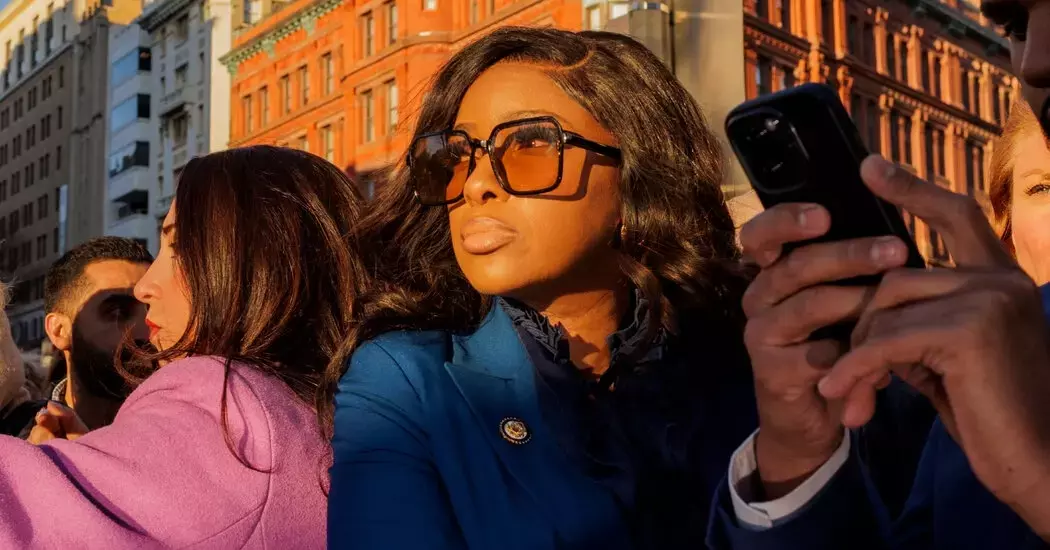
In a shifting political landscape, the Democratic Party is experimenting with a bold new approach to communication. This method, characterized by its edgy and provocative tone, seeks to redefine the party's image while appealing to disillusioned voters. The strategy involves embracing a more combative style, aiming to counteract the dominant cultural influence of former President Donald J. Trump's brash politics. Known online as "Dark woke," this emerging tactic marks a departure from the traditional resistance narrative that defined the previous era. Party insiders believe this shift could help reclaim lost ground by balancing crassness with strategic discernment.
A New Era for Democratic Messaging
During the final days of last summer, the Democratic Party enjoyed a period of renewed coolness. Kamala Harris, then the nominee for president, made waves on popular platforms like the "Call Her Daddy" podcast. Meanwhile, Tim Walz’s charismatic charm inspired memorable merchandise such as camo trucker hats. Memes flourished, and the party seemed invigorated. However, with Donald J. Trump's return to the White House, the culture surrounding his aggressive and male-dominated rhetoric has regained prominence. To many, the earnest resistance tactics used against Trump during his first term now appear outdated and awkward.
In response, some within the Democratic ranks advocate for adopting what is termed "Dark woke." Bhavik Lathia, a communications expert and former digital director for the Wisconsin Democratic Party, argues that Republicans have confined Democrats in a prison of respectability. He highlights an imbalance in strategies, where Republicans are free to make bold statements that capture voter attention, whereas Democrats remain constrained by conventional politeness. Lathia views this move towards "Dark woke" as a necessary strategic evolution. Rooted in years of internal discussions, this concept gained traction through internet memes about figures like "Dark Brandon," representing a side of Joe Biden feared by conservatives. Outside the party, movements like the "dirtbag left" further exemplify this trend of rejecting civility politics.
From a journalist's perspective, this shift underscores the evolving nature of political discourse. By exploring edgier messaging, Democrats may succeed in resonating with younger or disenchanted voters who crave authenticity over polished correctness. However, striking the right balance between assertiveness and decorum remains crucial. If executed effectively, this transformation could reinvigorate the party's public image and enhance its appeal across diverse demographics. Conversely, missteps might alienate core supporters who value traditional values and respectful engagement. Thus, the journey into "Dark woke" represents both an opportunity and a challenge for the Democratic Party.
